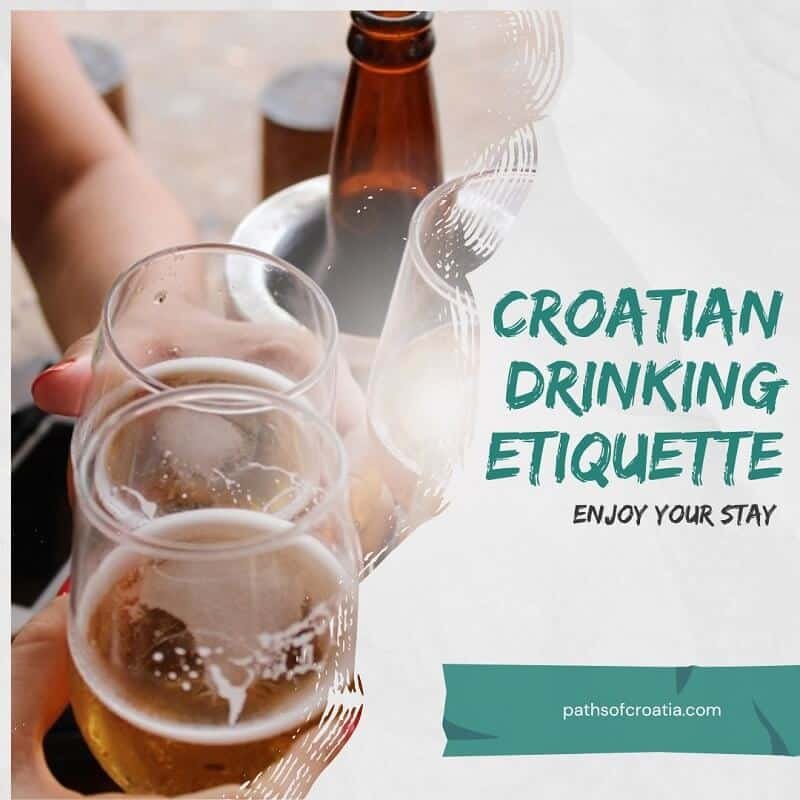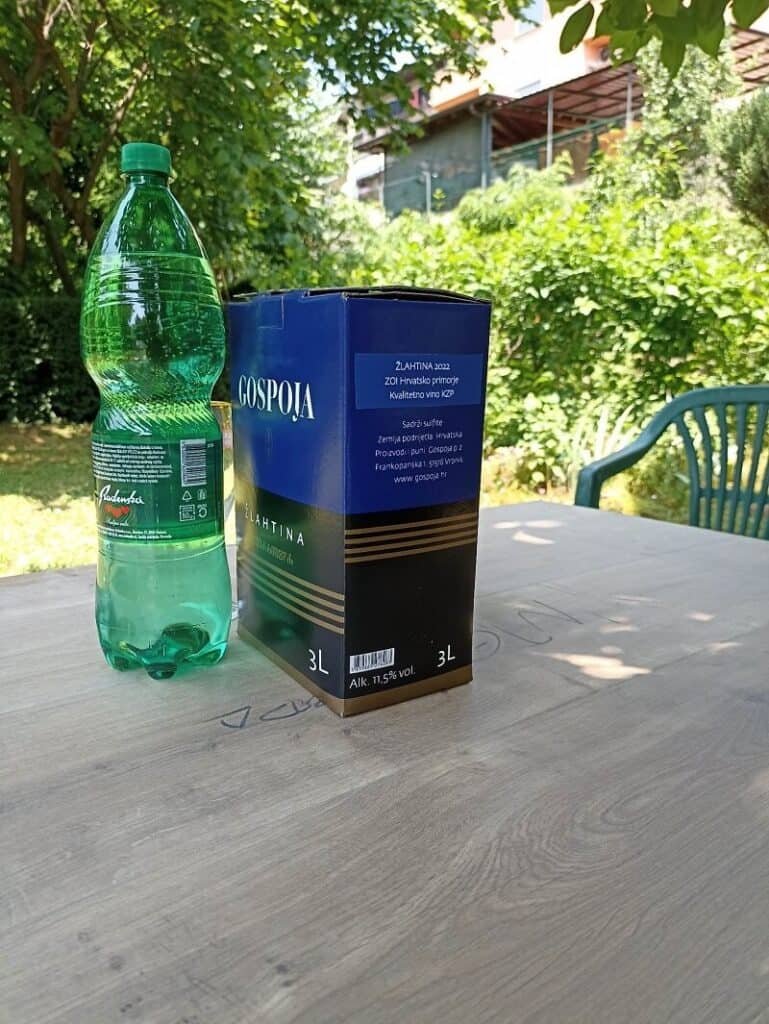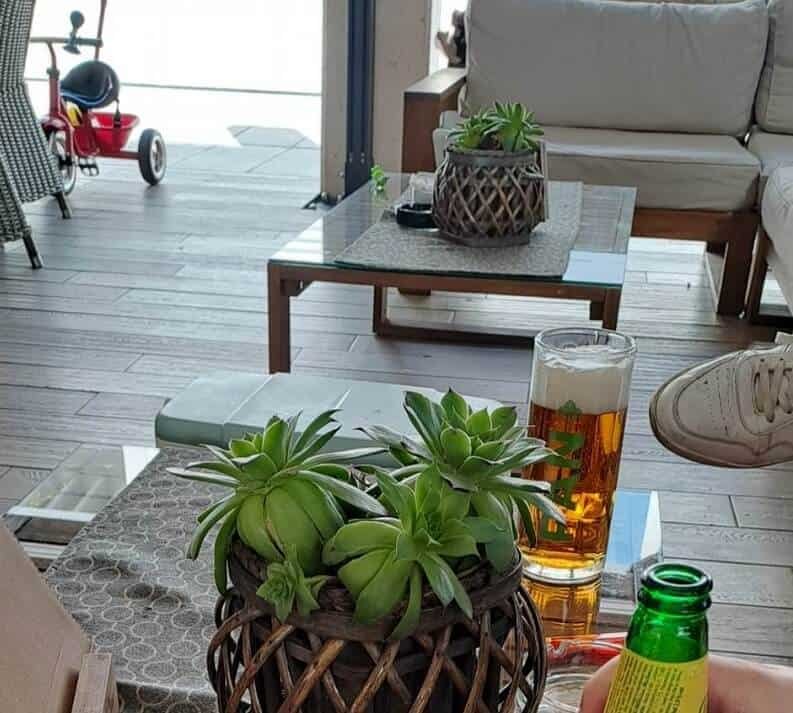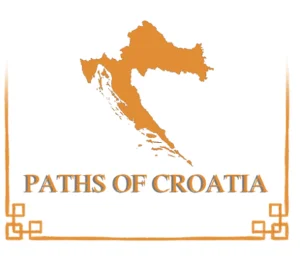
Croatia, with its stunning coastline, rich history, and vibrant culture, is a country known for its warm hospitality and love for good food and drink.
When it comes to drinking culture, Croatia has a diverse range of traditional beverages, unique drinking customs, and a strong appreciation for local wines and spirits
In this article, we will delve into the fascinating world of Croatian drinking culture, exploring its traditional drinks, popular social rituals, and the best places to experience the local flavors.
I am a Croatian local who adores good wines and beers and as I finally got an opportunity to talk about Croatian drinking culture, I’ll try not to leave a single important thing out!
Can you drink openly in Croatia?
Drinking openly in public in Croatia is forbidden by law, yet it’s not unusual to find groups of people enjoying their drink by the streets, beaches, and parks.
Drinking in busy public areas in big cities like Dubrovnik, Zagreb, Split, and Rijeka can be problematic and it’s not recommended, thus you’ll rarely see anyone drinking in these busy areas.
However, parks, beaches, and alleys are common areas where you can find people enjoying their drinks, and generally, if you desire to enjoy a beer in the open air in these areas, the odds that you’ll have problems aren’t high.
While public drinking is universally not allowed everywhere in Croatia, in reality, the police will only go after someone who’s disturbing the public peace and causing incidents and rarely pursue polite folk.
That said, I am not recommending drinking openly in Croatia, as Croatia is full of beautiful pubs and bars with fine drinks for affordable prices.
Can you walk around with alcohol in Croatia?
It’s not illegal to walk around with an unopened bottle or can of alcohol in Croatia.
However, walking with an open bottle or can of alcohol is treated as you are consuming the alcohol along the way.
At what age can you buy alcohol?
The legal age at which you can buy alcohol in Croatia is 18.
What is Croatia’s national drink?
Rakija: The Spirit of Croatia
Rakija holds a special place in Croatian culture as its strongest national drink. This traditional fruit brandy is made from various fruits such as plums, grapes, or cherries.
It is often served as a welcoming drink to guests or used for toasting special occasions.
Each region of Croatia has its own distinctive rakija, showcasing the diverse flavors and aromas of the country.
I believe that Croatian Rakija deserves its dedicated article, so I wrote it!
There you’ll find a whole list of this distinctive Croatian spirit, with interesting facts and everything you might ever need to know.
Wine: A Toast to Croatian Heritage
With its ideal climate and fertile lands, Croatia boasts a rich winemaking tradition that dates back thousands of years.
The country is home to several wine regions, including Istria, Dalmatia, and Slavonia, each producing unique varieties and styles.
From crisp white wines to robust reds, Croatian wines have gained international recognition and are a true reflection of the country’s cultural heritage.
For wine enthusiasts, exploring Croatia’s wine cellars and vineyards is an unforgettable experience.
Many wineries open their doors to visitors, allowing them to learn about the winemaking process, taste a variety of wines, and soak in the breathtaking landscapes of vine-covered hills.
Some wineries even offer accommodation, providing an opportunity to indulge in wine tourism at its finest.

Herbal Liqueurs: A Taste of Nature
Croatia is also known for its herbal liqueurs, which are deeply rooted in traditional medicine and folklore.
One such liqueur is Travarica, a herbal spirit made from a blend of medicinal herbs and plants. It is believed to have healing properties and is often enjoyed as a digestif.
Other herbal liqueurs like Pelinkovac and Medica showcase the country’s rich botanical diversity and offer a unique tasting experience.
I have also covered these herbal liqueurs in the article where I talk about rakija above, as these liqueurs are a combination of classic rakija such as Lozovaca and herbs, fruits, or honey.
Beer: The Refreshing Pint
Beer lovers will find their thirst quenched in Croatia as well. The country has a growing craft beer scene, with local breweries producing a wide range of flavorful and unique brews. From light lagers to hoppy IPAs and rich stouts, Croatian beers cater to every taste preference.
The two most popular Croatian beers are Ožujsko and Karlovačko and these are the beers for the masses as we like to say. The next beer very close in popularity is Pan, another great refreshment.
Personally, I am rather a fan of craft beers, but Ožujsko and Karlovačko lagers are a great refreshment on a hot day with simple taste, but refreshing character that people seem to love.
If craft beers are your thing, I can recommend The Garden Brewery’s Ales and Pilsners and Zlatni Medvjed and Grička vještica from Medvedgrad Brewery.
These beers are really decent and available at many stores.
Croatian breweries are keeping up with the craft beer trend which’s been alive for quite some time in the U.S. and I as a local, am getting positively surprised with the variety of great beers produced in Croatia.
Drinking Customs and Social Etiquette
“Živjeli!” – Cheers to Good Health
Croatians take their toasting rituals seriously, and no social gathering is complete without raising a glass and saying “Živjeli!” meaning “To your health!”
It is customary to make eye contact with everyone at the table while clinking glasses, ensuring a sincere and personal connection.
Additionally, it is polite to wait for a toast before taking the first sip of your drink.
Drinking in Croatia’s Kafići

Kafići, the local coffee houses, are an integral part of Croatian drinking culture. These cozy establishments serve not only coffee but also a wide range of alcoholic and non-alcoholic beverages.
It’s common to spend hours in a kafić, sipping coffee or enjoying a drink while engaging in lively conversations with friends or simply people-watching.
Seriously, an average Croatian guy spends half the time sleeping and the rest in kafić.
How expensive are drinks in Croatia?
Drinks in Croatia can vary in price depending on the location and establishment. Generally, prices for drinks are relatively affordable compared to other European countries.
It’s important to note that prices can vary depending on the region, establishment type, and whether you’re in a tourist hotspot. In popular tourist destinations, prices tend to be slightly higher. Additionally, keep in mind that the prices mentioned here are approximate and can change over time.
Remember to check the menu or ask the staff for prices before ordering to ensure you’re aware of the costs.
Beer
A pint of popular commercial beers such as Ožujsko and Karlovačko can cost from 2 to 3.5 Euros in pubs, bars,s or local festival stands.
Locally brewed, or craft beer in a pub or bar can range from 3 to 4.5 Euros, depending on the brand and location.
These prices may be slightly higher in popular tourist spots, but this is generally what I experienced all over Croatia.
Wine
A glass of house wine in a restaurant or wine bar usually costs around 3 to 6 euros. If you’re buying a bottle of wine in a store, prices can vary greatly depending on the quality and origin, starting from around 7 euros and going up pretty high for premium bottles.
These are just some typical prices for average wines, really good wines, especially in vineyards can be expensive.
It’s also possible to find decent Croatian wines for affordable prices when you buy those bulk packages which cost around 20 Euro for 3 liters.
Rakija
The price of rakija, a traditional fruit brandy, can vary depending on the fruit used and the quality. On average, a shot of rakija in a bar or restaurant ranges from 2 to 3 euros.
If you catch a happy hour in Croatian nightclubs you might find rakija for as low as 1 euro!
Cocktails
Cocktails in Croatia typically range from 7 to 12 Euros, with prices varying depending on the complexity of the drink and the location. In upscale bars or touristy areas, prices may be higher.
Yet, the price is worth it every time because there are rarely as good feelings as enjoying a cocktail by the beach with live music.
Non-Alcoholic Drinks
Soft drinks, such as cola or lemonade, usually cost around 1.5 to 2 Euros. Bottled water is widely available and costs around 1 euro.
Hangover Cures and Folk Remedies
While we all understand how drinking that extra glass of alcohol was unnecessary and how we won’t make another mistake, sometimes there’s nothing we can do about it to control it.
In such case, worry not because I’ll share with you a few proven Croatian methods for healing hangovers.
The Healing Power of Ajvar
When it comes to alleviating the effects of a hangover, Croatians turn to Ajvar. This traditional red pepper and eggplant spread is not only a delicious addition to meals but is also believed to have restorative properties.
Many locals swear by its ability to ease hangover symptoms, thanks to its rich vitamin content and antioxidant properties.
After spending a lovely weekend near Split a day before writing this article, I indeed tested this method for the 1000th time.
Traditional Soups: Nourishing the Soul
In Croatia, traditional soups like chicken noodle soup (pileća juha) and beef soup (teleća juha) are often enjoyed as a comforting remedy for hangovers. Packed with nutrients and flavors, these soups are believed to replenish the body and soothe the stomach.
Alternatives to alcohol
If you prefer not to consume alcohol or want to take a break from drinking, Croatia offers a variety of non-alcoholic options.
Try refreshing homemade lemonades, fruit juices, sodas, or the famous Croatian Cedevita, the lovely sweet, fruity drink responsible for the decreasing rate of hangovers in Croatia.
Furthermore, Croatia has really decent and safe tap water in most areas around the state, so sometimes there’s nothing more satisfying than drinking cold, fresh water from public or home taps.
Responsible Drinking in Croatia
And lastly, but equally important, while indulging in Croatia’s drinking culture, it’s essential to drink responsibly. Otherwise, you won’t keep the next day in a positive memory.
Here are a few tips to ensure a safe and enjoyable experience:
Tips for Safe and Enjoyable Drinking
- Pace yourself: Take your time and savor each drink. Avoid excessive drinking to prevent health risks and hangovers.
- Stay hydrated: Drink water in between alcoholic beverages to stay hydrated and minimize the effects of alcohol.
- Eat well: Enjoy a meal before drinking to slow down the absorption of alcohol into your system. (While you won’t always find restaurants open late in the night or early in the morning, there are phenomenal fast food stands with amazing hamburgers and kebabs all over Croatia).
- Plan your transportation: If you’re drinking, make sure to arrange for a designated driver or use alternative transportation options like taxis or public transport. In either case, please don’t drive drunk!
Understanding Blood Alcohol Content (BAC)
It’s important to understand the concept of Blood Alcohol Content (BAC) to gauge your alcohol consumption.
BAC measures the amount of alcohol in your bloodstream. In Croatia, the legal limit for driving is 0.05% BAC which applies to drivers 24 or older, while younger drivers are not permitted to have any alcohol in their blood.
It’s crucial to stay within the legal limits and prioritize safety.
Conclusion
Croatia has a strong drinking culture and historically amazing spirits and wines, while its craft beer industry is growing every year.
You’ll find many party places around Croatia with fine drinks and fine food, so be brave and explore what this small, but beautiful country offers!
Moreover, if you are into wines, joining an organized tour or exploring famous Croatian vineyards is an experience you won’t forget any time soon.
Have fun and don’t forget to drink responsibly, cheers!
